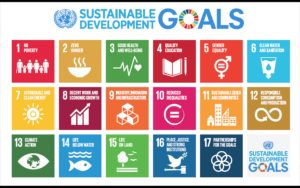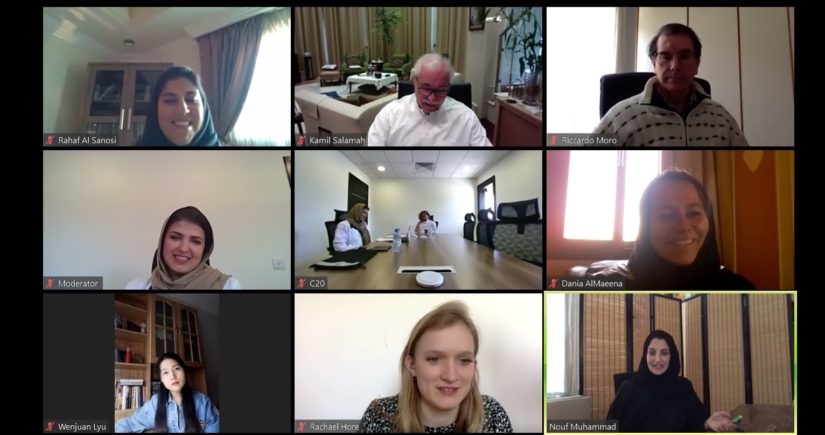This week CoST has been taking part in the (virtual) Face-to-Face meetings between the C20 and G20 Working Groups which give the opportunity for civil society to raise concerns over G20 priorities with working group representatives. Held at this extraordinary time, their importance and value is like never before. In this blog, CoST’s Charlotte Broyd outlines the key points from discussion.
On Sunday I attended the C20 Infrastructure Working Group (IWG) discussion, joining 40 representatives from civil society groups based worldwide. Convening in virtual format has its downsides – low bandwidth and the inability to interpret reactions to name just two – but this has not been a barrier to the sense of urgency encountered in discussions. In the C20 IWG meeting the group spoke with one voice on certain issues, contextualised to the COVID-19 pandemic.
1. C20 welcomes recognition of infrastructure investment as vital to pressing challenges
 Opening discussions, G20 IWG Saudi Policy Lead Rakan bin Dohaish emphasised the intrinsic links provided by infrastructure in dealing with crises – an assertion reiterated by civil society over the past weeks.
Opening discussions, G20 IWG Saudi Policy Lead Rakan bin Dohaish emphasised the intrinsic links provided by infrastructure in dealing with crises – an assertion reiterated by civil society over the past weeks.
Today we are seeing the vitality of good hospital and other healthcare buildings as well as the ability get to them via good transport infrastructure. Other structures needed to maintain operations during a crisis are increasingly important such as energy and communication provision. And looking further ahead, the ability of infrastructure to spur growth will be essential as economic implications of the crisis are felt.
2. C20 welcomes focus on governance and technology to deliver stronger economies
Whilst recognising that infrastructure investment leads to stronger economies, the C20 welcomed the G20 focus on good governance and use of technology to deliver better results from investment. These areas are fundamental to the CoST approach – our members worldwide are increasingly using technology and strengthening transparency and accountability to enable significant cost savings and other benefits in the process.
Most recently, we have helped to save millions and deliver better infrastructure in Uganda, Afghanistan and Honduras. It is results such as these that ground our belief in infrastructure transparency being key to closing the gap in the world’s infrastructure needs – a gap estimated to be $15 trillion by 2040.
3. C20 shares concerns on mobilising private finance to fill the infrastructure gap
 The G20 focus this year continues to be on attracting private finance to meet global infrastructure needs. During discussions we heard more on the slightly refined approach to doing so in this G20 Presidency, namely, to develop regulatory frameworks to attract investment in addition to the continued theme of establishing infrastructure as an asset class.
The G20 focus this year continues to be on attracting private finance to meet global infrastructure needs. During discussions we heard more on the slightly refined approach to doing so in this G20 Presidency, namely, to develop regulatory frameworks to attract investment in addition to the continued theme of establishing infrastructure as an asset class.
Chair of the C20 IWG and CoST Executive Director Petter Matthews previously blogged on C20 concerns about this focus including that this would not help to address infrastructure needs of low-income countries where incentive for private investment in infrastructure is less.
With the COVID-19 crisis, these concerns are coming strongly to the fore. Concerns have been raised that applying public-private partnership (PPPs) in certain infrastructure sub-sectors, like health, is having a devastating impact. When social infrastructure like healthcare is turned into a for-profit exercise, the poorest will suffer and public systems (as we are increasingly seeing) will be overwhelmed during crises. These issues are heightened in low-income countries which have poorer systems and are less able to come back from economic crises.
There are many concerns to take stock of in regard to PPP projects, and as highlighted in Petter’s earlier blog ensuring debate over PPP infrastructure investment is evidenced-based and less ideological is key. Whilst PPPs can bring significant economic benefit, their complexity and high value augments their scope for corruption and mismanagement. They must, therefore, be subject to scrutiny through transparency and accountability.
CoST has also seen the value of this approach in Honduras where it has improved PPP transparency. One example concerns the upgrade of the country’s ‘Tourist Corridor’. CoST highlighted issues found within the contract and financial model which had contributed to a large shortfall in revenue generated from tolls on the road. Following recommendations, the government agreed to restructure the project to relieve the burden to the taxpayer.
Beyond 2030: Delivering better infrastructure for stronger economies and better lives
 As the G20 and C20 engage this week, the G-7 have also been reverting to virtual means to hold meetings on the extraordinary COVID-19 crisis and discuss the immediate issues.
As the G20 and C20 engage this week, the G-7 have also been reverting to virtual means to hold meetings on the extraordinary COVID-19 crisis and discuss the immediate issues.
An issue for further discussion now concerns meeting SDG targets and an extension beyond their 2030 deadline. With the value of infrastructure (Goal 9) increasingly evident in crises as well as its importance for delivering a stronger economy, this should remain a top SDG priority. And ensuring that any infrastructure investment is subject to transparency and accountability (Goal 16) will be paramount to deliver the result urgently needed – that of building stronger economies and better lives.
